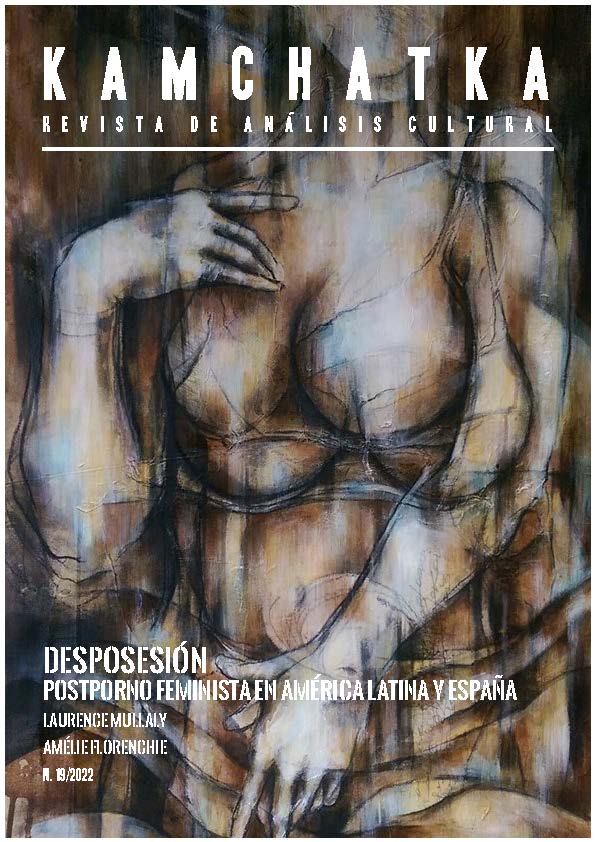Latin American literary testimony: an endless dispute
DOI:
https://doi.org/10.7203/KAM.19.20972Keywords:
testimonio, Premio Casa de las Américas, testigos, Cuba Abstract
Abstract
Despite the “institutionalization” and recognition of the testimony by literary criticism, the genre continues to be the target of disputes that (badly)treat it in the crossfire between literature and the social sciences. In an attempt to bring an update to these debates (main objective), within which varied and extensive edges are included, the author of the article has gone in search of some faithful believers and practitioners of the genre: the winners of the Casa Literary Américas Prize of the Americas in the modality of Testimony. The article thus proposes, initially, a brief theoretical approach to the subject and, in a second moment, a dialogical and reflective space sustained both by the criteria of the interviewees and by the analyzes suggested around his award-winning Works. Part of these unpublished interviews that are shared here show that such heterogeneous positions on the way of assuming testimonial writing vary, among other reasons, according to the academic discipline exercised by the professional. The debate, which includes journalists, writers, sociologists, anthropologists and filmmakers, proposes a renewed approach to the subject and confirms the idea that the disputes remain far from reaching their end.
 Downloads
Downloads
 References
References
Achugar, Hugo (1992). “Historias paralelas/ejemplares: La historia y la voz del Otro”. Beverley, John y Achugar, Hugo (eds.). La voz del otro: testimonio, subalternidad y verdad narrativa. Guatemala: Ediciones Papiro, S.A.
Arango, Arturo (2007). “Con tantos palos que te dio la vida: poesía, censura y persistencia”. Ciclo de conferencias: La política cultural del período revolucionario: Memoria y reflexión. La Habana.
Barnet, Miguel (1986). “La novela testimonio: socio-literatura”. En Jara, René y Vidal, Hernán (eds.). Testimonio y Literatura. Minnesota: Institute for the Study of Ideologies and Literature.
Basile, Teresa. “Reinstitucionalización del testimonio en América Latina desde la narrativa humanitaria” Aletheia Volumen 11 No.21 (2020): 1-26. Disponible en: https://www.aletheia.fahce.unlp.edu.ar/article/view/ALEe067
Casaus, Víctor (2010). Defensa del testimonio. La Habana: Editorial José Martí.
Forné, Anna. “El género testimonial revisitado. El premio testimonio de Casa de las Américas (1970−2007)”. El taco en la brea #1 (2014): 216-232. Disponible en: https://bibliotecavirtual.unl.edu.ar/publicaciones/index.php/ElTacoenlaBrea/article/view/4213/6363
Fornet, Ambrosio (2007). “El Quinquenio. Revisitando el término”. Ciclo de conferencias: La política cultural del período revolucionario: Memoria y reflexión. La Habana.
Fornet, Jorge. “La Casa de las Américas y la ′creación′ del género testimonio”. Revista Casa de las Américas No. 200 (1995): 120-121.
Forster, Ricardo. “El imposible testimonio: Celan en Derrida”. Revista Internacional Interdisciplinar Interthesis No.2 (2005): 1-20. Disponible en: https://dialnet.unirioja.es/descarga/articulo/5175668.pdf
García, Victoria. “Testimonio literario latinoamericano: prefiguraciones históricas del género en el discurso revolucionario de los años sesenta”. Acta poética 35.1 (2014): 63-92. Disponible en: https://revistas-filologicas.unam.mx/acta-poetica/index.php/ap/article/view/433
Iznaga, Diana (1989). Consideraciones Generales en Torno al Testimonio, en Presencia del Testimonio en la Literatura Sobre las Guerras por la Independencia Nacional (1868-1898). La Habana: Editorial Letras Cubanas.
Peris Blanes, Jaume. “La palabra es de ustedes, me callo por pudor: Antiintelectualismo y emergencia del testimonio en Cuba”. Atenea 508 (2013): 57-75. Disponible en: https://scielo.conicyt.cl/pdf/atenea/n508/art_05.pdf
Piglia, Ricardo (1973). “Hoy es imposible en la Argentina hacer literatura desvinculada de la política”. En Walsh, Rodolfo. Un oscuro día de justicia. México: Siglo XXI.
Prada Oropeza, Renato (1986). “De lo testimonial al testimonio. Notas para un deslinde del discurso-testimonio”. En Jara, René y Vidal, Hernán (eds.). Testimonio y Literatura. Minnesota: Institute for the Study of Ideologies and Literature.
Rama, Ángel. “Conversación en torno al testimonio”. Revista Casa de las Américas No. 200 (1995): 122-124.
Simón, Paula. “El Testimonio, un texto en busca de definición. El caso de los testimonios sobre los campos de concentración y el exilio en España y Argentina”. Gramma No.52 (2014): 61-74. Disponible en: https://p3.usal.edu.ar/index.php/gramma/article/view/3036/3659
Simón, Paula. “La memoria en los márgenes: la literatura testimonial concentracionaria de Nora Strejilevich escrita desde el exilio”. Gramma No.4 (2012): 208-216. Disponible en: https://p3.usal.edu.ar/index.php/gramma/article/view/3513
Strejilevich, Nora (2006). El arte de no olvidar. Literatura testimonial en Chile, Argentina y Uruguay entre los 80 y los 90. Buenos Aires: Catálogos.
Downloads
Published
How to Cite
-
Abstract1247
-
Artículo y documentos PDF (Español)577
Issue
Section
License
This journal provides an immediate free access to the content on the principle that freely make investigation available to the public, which promotes an increased global knowledge exchange.
Unless otherwise indicated, texts published in this journal are under the license Attribution-NonComercial 4.0 by Creative Commons. These texts may be copied, distributed and publicly communicated whenever the publication’s author and title are quoted and whenever they are not used for commercial purposes. In any case, intellectual property of the articles and its potential economic rights entirely belong to its authors.
The full license can be consulted on https://creativecommons.org/licenses/by-nc/4.0/. We encourage authors to disseminate papers published in Kamchatka. Journal of cultural analysis electronically, in institutional digital repository or in their websites.





